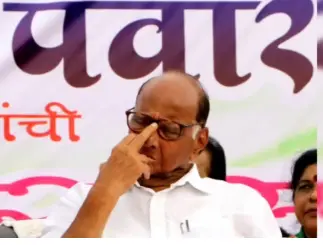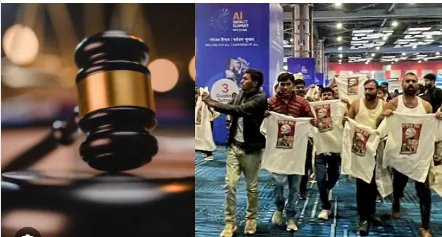

New Delhi, March 2:A Delhi court has granted bail to nine Indian Youth Congress members who were arrested for their involvement in a "shirtless" protest during the AI summit. The court emphasized that the protest served as a "symbolic political critique" and argued that pre-trial detention could amount to an "illicit pre-emptive punishment."
The order was passed by Judicial Magistrate First Class Ravi on Sunday, while hearing the bail applications of the nine accused: Krishna Hari, Narshimha Yadav, Kundan Kumar Yadav, Ajay Kumar Singh, Jitendra Singh Yadav, Raja Gurjar, Ajay Kumar Vimal (alias Bantu), Saurabh Singh, and Arbaz Khan.
The court noted that the protest, at its core, was a symbolic act of political dissent. It highlighted that the protesters wore T-shirts emblazoned with leadership imagery, carried non-inciteful slogans, and gathered in a peaceful, transient assembly. The court also pointed out that no evidence of property damage or panic among delegates was presented, and the protesters exited in an orderly manner with an escort.